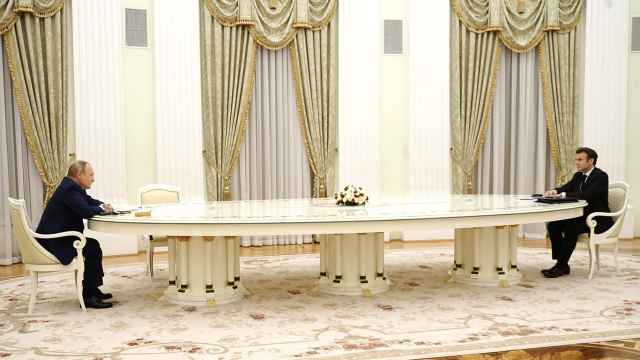The Communications and Press Ministry is preparing new legislation that would eliminate domestic roaming charges for mobile users, but market watchers say long-distance calls could become more expensive as a result.
Communications and Press Minister Nikolai Nikiforov announced via Twitter that the bill states that a subscriber visiting another city in Russia would be billed at the local rates in that city, although calls to other locations would be charged at the intercity rate.
It is not clear what the tariffs would be for incoming calls from other regions, but the idea is to implement charging based on the “calling party pays” concept, according to ministry officials.
However, in the above scenario, a caller could wind up making an expensive intercity call and not be aware of it. The ministry’s press service was unable to explain in more detail other than stating that subscribers should be charged based on the prevailing rate of the region they are in at the time of the call.
Deputy Communications and Press Minister Denis Sverdlov said in July that a new telecommunications bill was in the works and that it should be ready for the fall session of the State Duma.
The Big Three mobile operators can easily eliminate roaming inside their networks, since they have coverage across the whole country, Rostelecom spokeswoman Kira Kiryukhina said. But Rostelecom has mobile business in only 35 regions, and the charge in other regions depends on partners, she added. The regulator needs to clarify how that situation would be managed, she said.
Mobile TeleSystems thinks the current setup is fair, said spokesman Dmitry Solodovnikov. When a subscriber leaves his home region, operators incur additional expenses. According to the law, mobile operators are required to transmit such calls via long-distance and regional operators. Those costs are passed on to the traveling subscriber.
Other subscribers are paying only for using their local network, which allows the operator to keep base rates inside a region lower, Solodovnikov said.
VimpelCom agrees that the charging method now in use helps keep down costs of local calls. For VimpelCom, the proportion of domestic roamers is about 20 percent, spokeswoman Anna Aibasheva said.
Under the ministry’s proposal, subscribers are likely to pay more for outgoing calls, lawyer Anton Bogatov said. On business trips they are usually calling to their home region, and such calls would be charged at intercity rates, which are more expensive than roaming.
It is impossible to regulate the commercial aspects of roaming without changing the way telecommunications traffic is routed, said Kominfo Consulting development director Yevgeny Solomatin. Otherwise, operators could wind up providing services at a rate below their actual cost.
Setting rates is not the ministry’s task but that of the operators, he said, adding that operators already have tariff plans offering identical rates regardless of where the subscriber is.
A Message from The Moscow Times:
Dear readers,
We are facing unprecedented challenges. Russia's Prosecutor General's Office has designated The Moscow Times as an "undesirable" organization, criminalizing our work and putting our staff at risk of prosecution. This follows our earlier unjust labeling as a "foreign agent."
These actions are direct attempts to silence independent journalism in Russia. The authorities claim our work "discredits the decisions of the Russian leadership." We see things differently: we strive to provide accurate, unbiased reporting on Russia.
We, the journalists of The Moscow Times, refuse to be silenced. But to continue our work, we need your help.
Your support, no matter how small, makes a world of difference. If you can, please support us monthly starting from just $2. It's quick to set up, and every contribution makes a significant impact.
By supporting The Moscow Times, you're defending open, independent journalism in the face of repression. Thank you for standing with us.
Remind me later.






